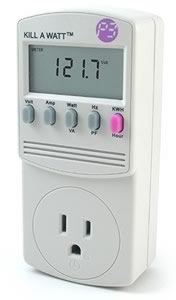How to Find a Contractor: It’s Not Just About Price
On Monday I mentioned that it pays to shop around for the lowest price. This skill is specially important when making large money decisions. You should always shop around when purchasing a car, obtaining a mortage, or hiring a contractor. We've discussed getting the best deal on a car before. We've touched on mortgages, and are sure to discuss them more in the future. Today I want to share my approach to finding a contractor.
The New Roof
We bought our first house in the spring of 1993. The roof was in bad shape and needed to be replaced before we could close the deal. Fortunately, we had a good working relationship with the seller: he offered to grant us a $2,000 credit if we would take care of finding a roofer.
I had never done anything like this before, nor had any of my friends. I looked in the phone book and found a local roofer. When I called, he could sense that I was confused, so he talked me through the process, asking about the size of the house, the slope of the roof, the material we wanted to use, the condition of the existing shingles. He gave me a quote of $2300.
Gardening 101: Plan Today for Summer Success

This was an actual weekend harvest from our garden last August.
At Get Rich Slowly, we get many requests for information about starting a vegetable garden. This is huge topic, and really enough fodder for an entire website. If you're a novice gardener you will benefit by asking yourself six questions before mail-ordering seeds or heading to your local nursery. Now is the time to do your research so that you'll be ready for planting season.
Do you actually like to eat vegetables?
If not, focus on fruits and herbs, edible and ornamental flowers, and a favorite veggie or two. A well-tended garden will produce a lot of vegetables. If you are lukewarm about zucchini then pass up that beautiful seedling. (Or go introduce yourself to your five nearest neighbors so that you can share come July).
What is your gardening space like?
This is probably the most important question for the novice gardener. If you are starting from bare dirt or, more likely, a patch of lawn, you have some work to do. The plot needs to be evaluated for sun and wind exposure, moisture/drainage, soil pH and elemental content, pests, and other factors.
Cheap Ways to Stay Warm this Winter
Winter weather has arrived in Oregon — it's rainy and cold. This time of year, Kris and I search for ways to keep warm. A lot of guides to saving money on heating contain impractical advice: "consider heating with solar energy!". They offer good suggestions for the long-term, but they aren't useful if you want to save money now. Here are some frugal ways we stay warm in our drafty old house.
- Let in some light. Open blinds on south-facing windows during the day to let in the sun. Close them in the evening to add a bit more insulation. This provides just enough mid-day warmth that we don't need the heater.
- Use rugs on bare floors. We have hardwood floors above a poorly-insulated basement. These floors are cold in the morning and the late afternoon. An area rug does a fine job of keeping my feet warmer.
- Block drafts. This is best done with weather-stripping or other forms of insulation, but even a blanket in front of a door helps. Because our house is so old, nothing is level. This makes it difficult to install weather stripping. The bottom of our mudroom door, for example, has a one-inch gap on one end but is flush with the floor near the hinge. By laying a blanket in front of the door, we can mitigate some of the heat loss.
- Use space heaters. According to Michael Bluejay's energy guide, this is the single best way to save money on electricity. As I learned from my tests with the Kill-a-Watt, a portable radiator-type oil heater uses a lot of power, but not nearly as much as a furnace. We have a couple of these heaters. They take a while to get warm, but once they're going, the can heat a small space cheaply.
- Bundle up. I love cold-weather clothes: long underwear, sweaters, hats, scarves, gloves. Some days we simply bundle up and turn down the heat. It's cozy. And don't forget: house slippers go a long way to keeping you warm!
- Install a programmable thermostat. My sister-in-law just received her first big heating bill at her new home. "It was $100!" she said. (She had been leaving her thermostat at 68-degrees around the clock.) Her heating bill was more than she had budgeted, and made it easy to justify the cost of a new programmable thermostat. They're easy to install and an excellent way to cut your heating costs. We set ours for 54 at night and when we're gone during the day. (Reader Adam G. reviewed his programmable thermostat last August.)
- Use an electric blanket. There's no need to heat the entire house when you're asleep. There's no need to even heat the bedroom. An electric blanket is cheaper and cozier. (A blanket with dual-controls is best.)
- Change the furnace filter. A dirty filter forces the furnace to work harder, decreasing its efficiency, increasing heating costs. We change the furnace filter at the start of the season, and once every month or two thereafter.
- Close unused rooms. Do not heat them. This winter, we closed off our guest room and shut the heater vent. That room is now separate from the rest of the house. It stays cold, but there's no reason to keep it warm.
These steps can reduce your heating costs immediately. In the long term, your best bet is to make sure your home is properly insulated. You should also check that your heat source is efficient, and that you're not losing heat in unintended locations.
For example, I went down to the cellar last night to pull out some Christmas lights. I was startled to find that the basement was actually warm. It shouldn't be. It's uninsulated, below-ground, and exposed to the cold. The furnace was pumping away, doing its thing, heating the house. But it was apparently heating the cellar, too. It took only a moment to find the problem — our ductwork is not insulated. As the hot air blows through the pipes, the metal is heating, and the warmth is dissipating into the basement. We need to fix that.
Review: Kill-a-Watt electricity usage monitor
 In June I shared some tips for reducing home energy costs. Most of the information came from Michael Bluejay's excellent guide to saving electricity. I was curious how much electricity invidual appliances use, so I ordered a gadget that Bluejay recommends: the Kill-a-Watt electricity meter. The official website declares:
In June I shared some tips for reducing home energy costs. Most of the information came from Michael Bluejay's excellent guide to saving electricity. I was curious how much electricity invidual appliances use, so I ordered a gadget that Bluejay recommends: the Kill-a-Watt electricity meter. The official website declares:
Connect your appliances into the Kill A Watt™, and assess how efficient they are. A large LCD display counts consumption by the Kilowatt-hour just like utility companies. You can figure out your electrical expenses by the hour, day, week, month, even an entire year. Monitor the quality of your power by displaying Voltage, Line Frequency, and Power Factor.
I've gone through our house and measured the power consumption of random devices: Continue reading...
What happens when you try to get rich quickly
Robert Kiyosaki, Robert Allen, and Loral Langemeier would have you believe that in order to get rich all you need to do is throw your money into real estate, sit back, and let the profits come. It's not that simple. There's risk involved. You have to know what you're doing.
Jon forwarded a link to what he calls "a personal finance trainwreck". He writes: "If this guy is for real (and there appears to be some suspicion about that) then, wow. Unbelievable." Casey at iamfacingforeclosure.com thought he could make a killing at real estate. He wanted to reach Financial Independence quickly.
I'm a 24-year-old aspiring real estate investor from Sacramento, California. After going to few seminars I bought eight houses in eight months across four states with no money down. I fixed and sold two and then ran out of cash. I am now facing foreclosure on
sixfive houses. I'm learning my lessons, finding solutions and blogging about it.
Saving electricity: How to reduce your energy costs
How much electricity does your computer use? Your refrigerator? Your washer and dryer? Do you know how to save money on water heating costs? Michael Bluejay's guide to saving electricity answers these questions and more. Bluejay calls himself "Mr. Electricity" — the title is apt!
My guide on Saving Electricity gives you a bit more than you might get elsewhere. I explain exactly what a kilowatt hour is and how much you pay for one. And I show you how to calculate exactly how much electricity your household appliances use, so you know which items are guzzling the most juice (and which ones are the best targets for savings). You'll learn exactly how to read your electric meter. (Find that on any other website!) Finally, I not only give you meaningful tips for slashing your electricity consumption, I give you the tools to figure out exactly how much you're saving as well.
Bluejay recommends you attack the biggest energy users first: "You'll save more electricity by dealing with the biggest electricity-guzzlers rather than worrying about items that don't use much electricity." Because appliances that heat and cool use the most energy, these provide the greatest opportunities for saving. For example: Continue reading...